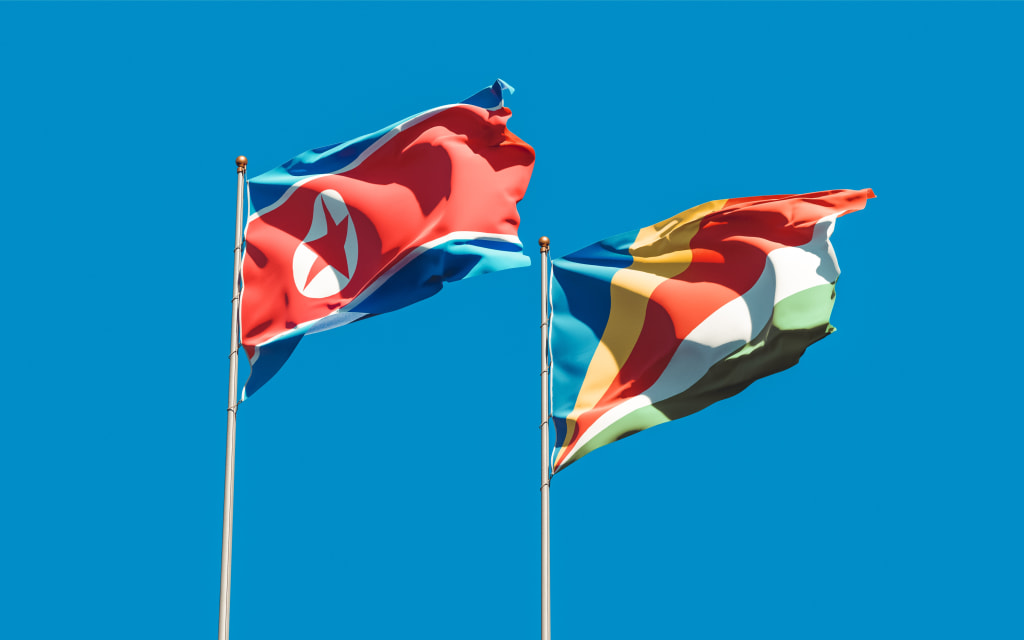North Korea: The Fortress of Fear
Escaping the Iron Grip

North Korea, officially known as the Democratic People's Republic of Korea (DPRK), is a country on the Korean Peninsula in East Asia. Its history is marked by a division between the North and South after World War II, influenced by the Soviet Union and the United States, respectively. The ensuing ideological differences set the stage for the totalitarian regime that characterizes North Korea today.
Kim Il-sung, the founding leader of North Korea, established a communist government after the Korean War in the early 1950s. His regime was built upon the principles of Juche, a state ideology advocating for self-reliance and control over all aspects of society. The personality cult surrounding the Kim family was crucial for the regime to maintain power, with Kim Il-sung portraying himself as a near deity and his successors following suit.
Central to the regime's control is an elaborate system of surveillance and informants, creating a pervasive culture of mistrust and fear. The government closely monitors its citizens, encouraging them to report any perceived subversive activities. This surveillance network, combined with severe punishments for dissent, stifles any attempts to organize escape.
North Korea's economy is centrally planned and tightly controlled by the state, with most citizens living in poverty and facing severe shortages of basic necessities. The regime deliberately maintains this scarcity to foster dependence on the government. The fear of losing access to the already limited state-provided resources further discourages attempts to escape.
The regime's control extends to movement within the country, requiring citizens to obtain permits for traveling. Unauthorized movement is considered a grave offense, punishable by imprisonment or other severe consequences. These restrictions on movement significantly impede escape planning and execution.
One of the most impenetrable barriers to escape is the Korean Demilitarized Zone (DMZ), a heavily fortified and militarized border between North and South Korea. The DMZ is strewn with landmines, electrified fences, guard posts, and is constantly patrolled. Crossing this heavily secured border is an exceedingly perilous undertaking.
Attempting to escape from North Korea carries immense risks. The regime employs a policy of collective punishment, where not only the defector but their entire family can face severe repercussions. This includes imprisonment in labor camps, torture, or execution. The fear for the safety and well-being of loved ones acts as a powerful deterrent against escape.
Efforts by the international community to aid North Korean escapees and improve human rights conditions face significant hurdles due to the regime's isolationist policies. The closed nature of the country makes it challenging to fully comprehend the extent of human rights abuses and implement effective solutions.
In addition to the barriers presented by the North Korean government, the country's isolated status on the global stage compounds the challenge of escape. North Korea's self-imposed isolation has led to a lack of external influence and intervention, allowing the regime to maintain its oppressive grip on the population without significant international scrutiny. This isolation makes it difficult for escapees to seek assistance from the international community, hindering their ability to navigate the complex and dangerous journey to freedom.
The few who do manage to escape often rely on a network of smugglers and brokers who specialize in guiding defectors across the border, often through China or other neighboring countries. However, these networks operate clandestinely due to the illicit nature of their activities, exposing escapees to the risk of exploitation, trafficking, and betrayal. The danger and uncertainty associated with relying on these underground networks further underscore the near-impossible nature of escaping North Korea and the desperate circumstances that drive individuals to attempt it.
Additionally, the indoctrination and propaganda perpetuated by the North Korean regime play a crucial role in deterring escape attempts. The state-controlled media and educational system relentlessly promote the Kim family's cult of personality and Juche ideology, depicting the regime as the benevolent protector of the people. Citizens are inundated with narratives that portray the outside world as hostile and inferior, instilling a deep-rooted fear and mistrust of anything beyond the borders of North Korea. This psychological manipulation, combined with severe punishment for dissent, creates a mental barrier that reinforces the belief that escape is not only dangerous but morally wrong, further inhibiting the desire to break free from the regime's shackles.
In conclusion, the totalitarian regime's strict control over its citizens, the state-controlled economy, extensive surveillance, restricted movement within the country, and the heavily fortified DMZ collectively render escape from North Korea an extraordinarily challenging and perilous endeavor. Addressing the core issues and fostering international cooperation are crucial steps toward a future where the people of North Korea can live without fear and repression.
About the Creator
Gale Mills
Unique stories from an imagined perception. Allow me to feed your brain.





Comments
There are no comments for this story
Be the first to respond and start the conversation.